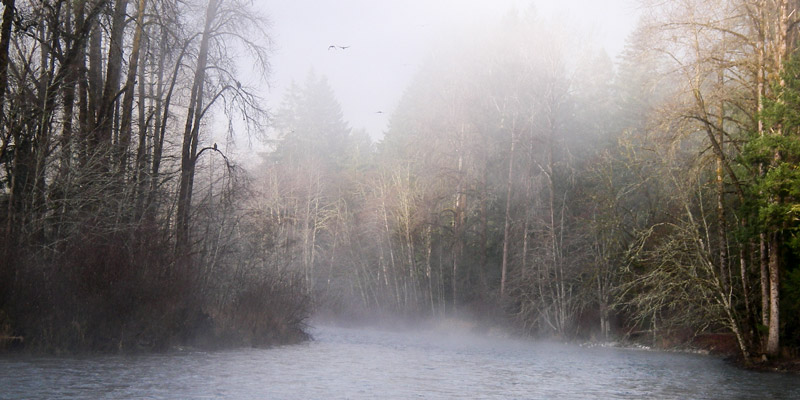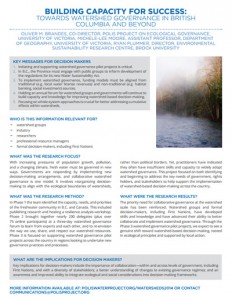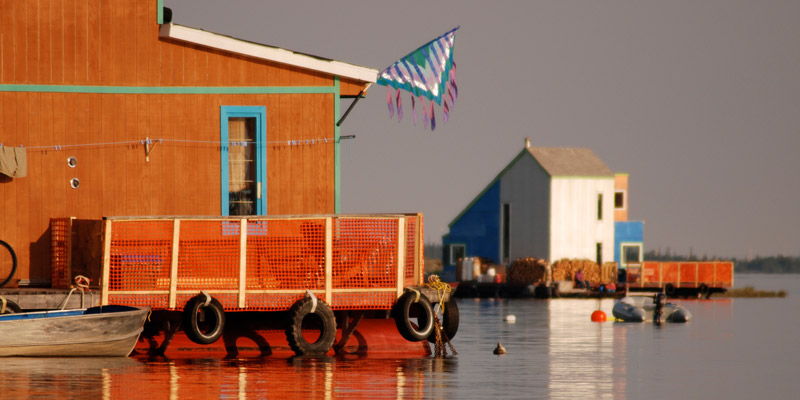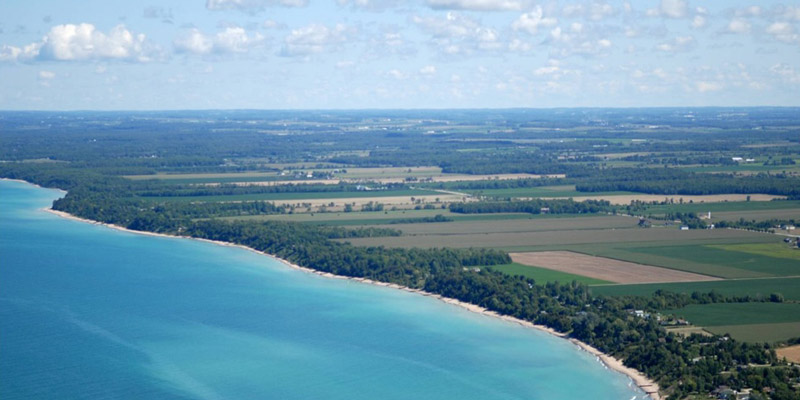Building Capacity for Success: Towards Watershed Governance in British Columbia and Beyond
Principal Investigators - Oliver M Brandes, University of Victoria and Ryan Plummer, Brock University (2013-2014)

Challenge
To ensure the protection and sustainability of our water, practitioners agree that it must be governed in new ways. Some governments and watershed groups are responding by implementing new and innovative decision-making arrangements. One emerging model is collaborative watershed governance, which reorients decision-making authorities and processes, and reorganizes them to align with watershed boundaries, rather than traditional political jurisdictions and borders. However, this method of governance faces many challenges, including the need to build the capacity and skills of on-the-ground players to effectively adopt this approach.
A 2008–2012 CWN-funded project “Governance for Watershed-Based Source Water Protection (SWP) in Canada: A National Assessment,” led by Dr. Rob de Loë, addressed knowledge gaps in SWP governance and underscored a number of challenges to implementation of collaborative watershed governance, including:
- Understanding the implications of rescaling water governance and the potential of using watersheds as an appropriate unit for better decision-making/governance around water;
- Addressing the need to build on-the-ground capacity and learn from experiences and successes in other jurisdictions; and
- The importance of ensuring legitimacy and accountability of key decision-making processes and organizations.
A number of key opportunities exist to further reform and adapt watershed governance to address these challenges across Canada. This project, led by Oliver M. Brandes & Dr. Ryan Plummer, investigates critical questions necessary to implement effective collaborative watershed governance.
Project
This project investigates three critical questions necessary to implement effective collaborative watershed governance:
- What factors determine the appropriate balance in roles and responsibilities between levels of government, including First Nations, as well as non-governmental actors at the watershed scale?
- What skill and capacity-related challenges must be addressed for watershed-based organizations (formal and informal) to better engage in water/resource decisions?
- How can we build institutional relationships that are resilient, innovative, and legitimate that translate into watershed protection and improved ecosystem function?
To help answer these questions, the project conducted a preliminary Resilience Analysis Workshop (in the Cowichan watershed, B.C.) to engage end users in the analysis of social-ecological watershed resilience and the development of applied tools to build capacity for improved water(shed) governance. This workshop was followed by a three-day national Watershed Governance Forum, “Watersheds 2014,” hosted in late January 2014 at the Quw’utsun’ Cultural and Conference Centre in Duncan, B.C. The Forum was designed for watershed groups, researchers, professional resource managers, and decision-makers at all levels of government, including First Nations. It featured leading experts on watershed governance and emphasized skill-building modules, delivered by strategic partners, for watershed groups to improve their capacity for governance; this included a case study to share lessons learned from the preliminary Resilience Analysis Workshop. In addition, the Forum offered an opportunity to identify those critical watershed groups who will commence the next phase of the project. After the Forum, the leading watershed initiatives will act as on-the-ground pilot projects, bringing together and implementing key themes from the Resilience Analysis Workshop and Watershed Governance Forum to build effective collaborative watershed governance. These additional pilot watersheds will be supported to catalyze action towards collaborative watershed-based initiatives.
Outputs
- A discussion paper to address the institutional and legal reforms needed to improve water governance (“A Blueprint for Watershed Governance in British Columbia” was published in January 2014 and is available at http://poliswaterproject.org/blueprint).
- A discussion paper that provides detailed guidance for B.C.’s Water Act reform (as a potential model for other provinces/territories).
- A three-day forum, “Watersheds 2014: Towards Watershed Governance in British Columbia and Beyond,” for water practitioners, watershed groups, First Nations, and other decision-makers (was held January 27th to 29th, 2014 in Duncan, B.C.).
- Summary report of key conclusions, lessons learned, and next steps, based on the Watersheds 2014 event.
- Briefings and detailed recommendations from the Forum that will be communicated to partners and strategic end users, including the Province of B.C. Water Act modernization team to enable future progressive water law reform that promotes collaborative watershed governance.
Outcomes
- Improved water stewardship processes in pilot watersheds, including increased riparian protection, improved source water quality, updated water sharing/water allocation tools, and increased government, citizen, First Nations, and community participation.
- The ability to effectively inform the new B.C. Water Act, which could enable better participation and engagement of communities in decision-making (a potential model for other Canadian jurisdictions).
- Improved knowledge for better decision-making and water management practices such that water professionals and community groups better understand the priority of better governance and are equipped with leading tools (e.g. river health and resilience assessment frameworks, community-based monitoring programs) and supported by sophisticated regional and national networks to improve watershed health and functioning.
- Increased support from non-traditional funding entities for watershed groups to build capacity for on-the-ground implementation.
- A community of interest formed that is committed to regular gatherings for peer-to-peer learning, improving governance, and implementing best management practices.





